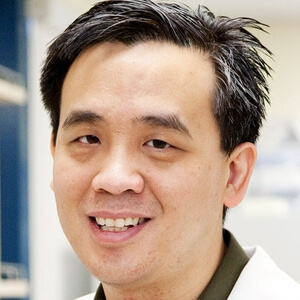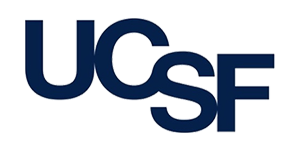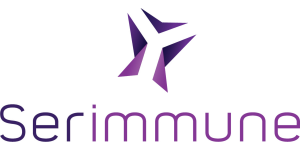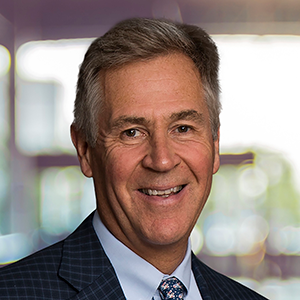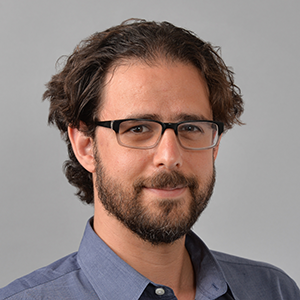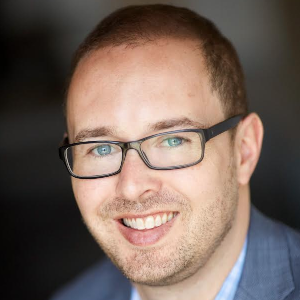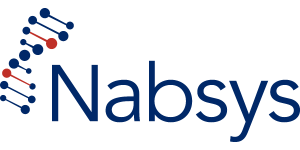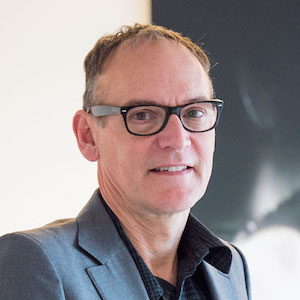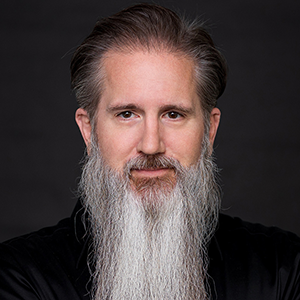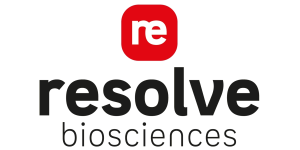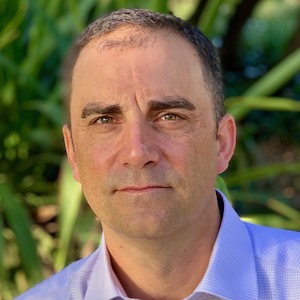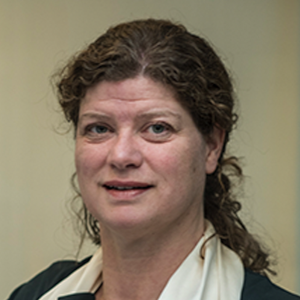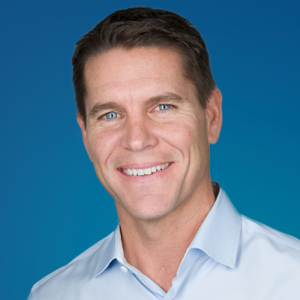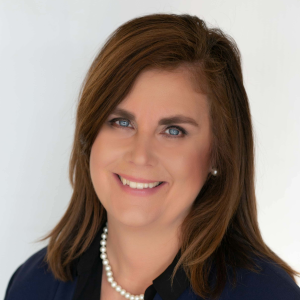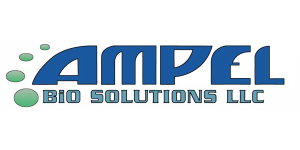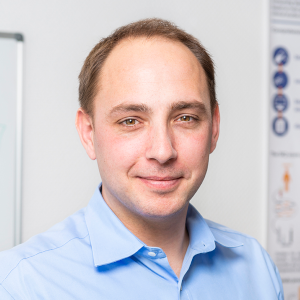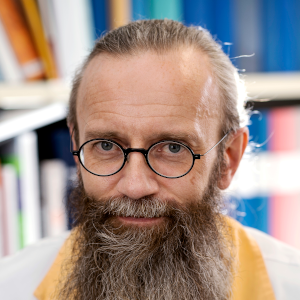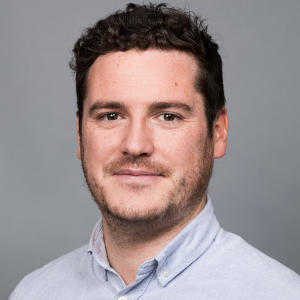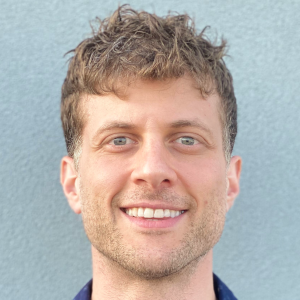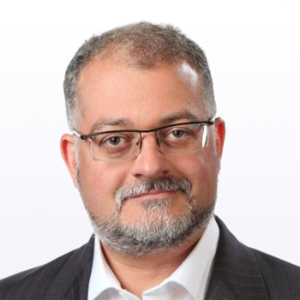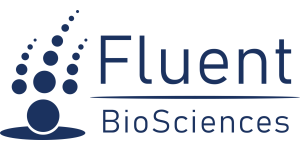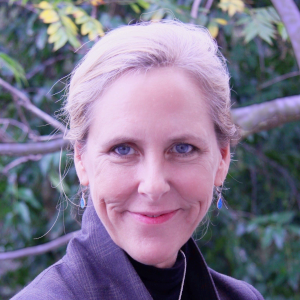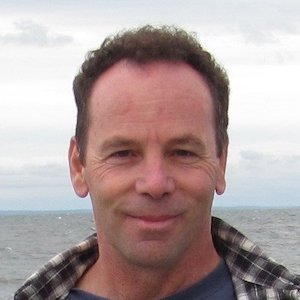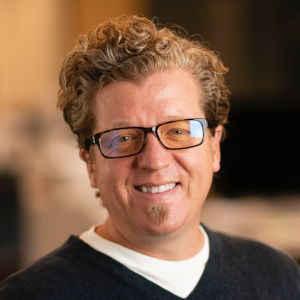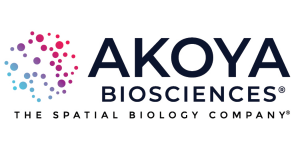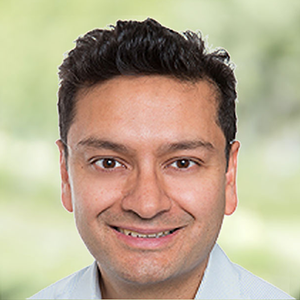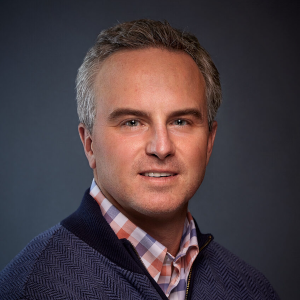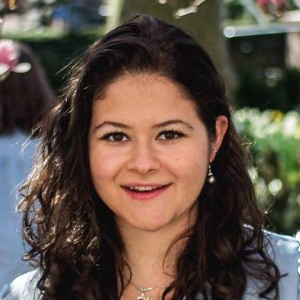Sequencing technologies are continuously improving, making it easier to obtain more in-depth molecular information than ever before. Emerging single-cell multi-omics sequencing technologies allow the capture of multiple modalities from a cell, including its epigenome, transcriptome, epitranscriptome, and proteome. This allows research into the heterogeneity of many biological mechanisms, and insights into complex molecular mechanisms that underpin disease.
Sessions:
- 4th Generation Sequencing Technologies & Genome Mapping Systems
- Barrett Bready, Nabsys
- Alka Chaubey, Bionano Genomics
- Eli Glezer, Singular Genomics - Long-Read Sequencing Technologies
- Steve Turner, PacBio - Single Cell Genomics
- Michael Schnall-Levin, 10x Genomics - Spatial Transcriptomics
- Jason T. Gammack, Resolve Biosciences - Pathogen Identification
Session Chair: Charles Chiu, UCSF
- Philip Stevens, Noscendo - Metagenomics and Microbial Profiling
- Amrie Grammer, Ampel BioSolutions - ML/AI for Diagnosis & Prognosis
- Todd Dickinson, Arc Bio - Modern Technologies for Pathogen Identification + AI
Session Chair: Sivan Bercovici, Karius Dx - Novel SBS Methodology
- Josh Lauer, Ultima Genomics - Proteogenomics
- Nigel Beard, Encodia - Advances Proteomics - Stratifying Cardiovascular Risk to Decrease Cost of Care
Session Chair: Roy Smythe, SomaLogic
- Adrian Lee, UPMC
- Jamie Bauersmith, UPMC - Leveraging Immune System Diagnostics to Improve Disease Outcomes
Session Chair: Kathy Kamath, Serimmune, Inc
- Noah Nasser, Serimmune, Inc
- Sasha Tabachnikova, Yale - Evolving Alzheimer’s Disease Therapeutics with Neuro Diagnostic Therapies (PANEL)
Session Chair: Kevin Hrusovsky, Quanterix
- Charlotte Teunissen, Amsterdam UMC
- Henrik Zetterberg, University of Gothenburg
- Nicholas Ashton, University of Gothenburg - PMWC Showcase (NCI)
- Michael Cardone, Eutropics Pharmaceuticals
- Robert Meltzer, Fluent BioSciences
- Cynthia Taylor Lawley, Olink Proteomics
- Niro Ramachandran, Akoya Biosciences
- Asim Siddiqui, Seer
Session Chair Profile
Biography
Charles Chiu, M.D./Ph.D. is a Professor at UCSF, Director of the UCSF-Abbott Viral Diagnostics and Discovery Center (VDDC), and Associate Director of the UCSF Clinical Microbiology Laboratory. Chiu currently leads a translational research laboratory focused on clinical metagenomic sequencing assay development for infectious diseases and genomic investigation and surveillance of emerging pathogens, including the SARS-CoV-2 coronavirus. He also uses RNA-Seq transcriptome profiling to develop predictive models using machine learning for host response-based diagnosis of COVID-19 and other infections. Chiu’s work is supported by funding from the National Institutes of Health (NIH), Department of Defense, US Centers for Disease Control and Prevention (CDC), philanthropy, and the California Initiative to Advance Precision Medicine. He has authored more than 100 peer-reviewed publications (>20 on COVID-19), holds over 15 patents and patent applications, and serves on the scientific advisory board for Mammoth Biosciences, Danaher Dx, Biomesense, and Flightpath.
Session Chair Profile
Biography
Dr. Kamath is a founding scientist at Serimmune, Inc. Her expertise in therapeutic and diagnostic development has been essential to Serimmune’s Serum Epitope Repertoire Analysis (SERA) platform. SERA combines the power of bacterial display peptide library technology with next-generation sequencing and bioinformatics to profile antibody repertoires and identify and map antibody-based biomarkers of infections, autoimmunity and cancer. Once discovered, all the biomarkers can be assayed simultaneously from a single test, potentially reducing time to diagnosis or providing insights into the cause of undiagnosed disease. Prior to her work at Serimmune, Dr. Kamath worked on the development of cancer companion diagnostic and diagnostic assays at Agilent Technologies as well as modified therapeutic monoclonal antibodies (ProbodiesTM) at CytomX Therapeutics. She received her Ph.D. from University of California, Santa Barbara with an emphasis on cancer biology and therapy.
Session Chair Profile
Biography
Kevin Hrusovsky has dedicated his 30-year career to leading disruptive medical technology companies and shepherding a global movement to transform healthcare to Precision Health. He created Powering Precision Health foundation, an internationally renowned non-profit promoting a new era of medicine using biomarker innovation to achieve precision medicine. Kevin has always been committed to accelerating adoption and value creation for many “game changing” non-invasive early detection technologies for Oncology, Neurodegeneration and Cardiology which are transforming drug development and disease prevention. Before Quanterix, he was CEO of Caliper Life Sciences, and Zymark Corporation, as well as, President of Life Sciences at PerkinElmer. He is the recipient of several distinguished awards including the 2019 EY Entrepreneur of the Year®, the 2018 Lifetime Achievement Award for Leadership and the E.G. Bailey Entrepreneurship Award (2013), both from The Ohio State University.
Session Chair Profile
Biography
Sivan is an innovator in artificial intelligence, pioneering the development of complex computational and data platforms, as well as novel machine-learning models designed to address critical challenges in human disease.
Session Chair Profile
Biography
Dr. Bready was founding CEO of Nabsys in 2005, helped lead development of the core technologies, and raised $100 million in venture financing to support the company’s growth. His technical and business leadership has resulted in the successful development and commercialization of HD-Mapping™, electronic high-definition whole-genome mapping. Dr. Bready is an adjunct professor at Brown University where he lectures on the rapidly evolving business of biotechnology. He serves as a commissioner of the I-195 Redevelopment District Commission, a major land redevelopment initiative in downtown Providence, RI with a focus on life sciences and other high-technology sectors. He has received numerous awards including, in 2011, Rhode Island Innovator of the Year, and in 2018, a career achievement award from the Warren Alpert Medical School of Brown University. Dr. Bready received an M.D. and an Sc.B. in physics from Brown University, both as part of Brown’s Program in Liberal Medical Education (PLME).
Session Chair Profile
Biography
Steve Williams is currently responsible for Clinical R&D, Medical Affairs and Regulatory and Quality. He joined SomaLogic in 2009 as Chief Medical Officer responsible for the clinical application of the SomaScan® Platform and also had roles in launching the Life Sciences commercial business, assay development and bioinformatics. Prior to SomaLogic, Dr. Williams co-founded the pharma consultancy Decisionability, LLC in 2007 and authored the book “Decisionability.” From 1989-2007, he worked at Pfizer, Inc., initially in Experimental Medicine and later as Vice President and Worldwide Head of Clinical Technology. From 2003-2007, he was on the National Advisory Council for Biomedical Imaging and Bioengineering at the National Institutes of Health. He helped to launch the Alzheimer’s Disease Neuroimaging (ADNI) study and to form the FDA-FNIH-PhRMA biomarker consortium. He led or co-led the PhRMA position papers on “proof of concept,” surrogate endpoints and evidentiary standards for biomarkers and diagnostics.
Speaker Profile
Biography
Jason T. Gammack brings more than 25 years of life sciences industry experience and has developed successful product and customer engagement strategies for some of its preeminent biotechnology brands. He recently served as Chief Commercial Officer at Inscripta, where he oversaw sales, marketing, business development, and customer support for the company’s CRISPR-enabled Onyx™ Digital Genome Engineering platform. Before that, he was Vice President of the Life Science Business at QIAGEN, where he led the life science portfolio and go-to-market strategy. Earlier in his career, Gammack developed commercialization growth strategies at Ingenuity Systems, a leading bioinformatics company acquired by QIAGEN in 2013. He has also held senior leadership roles at Sigma-Aldrich, Invitrogen/Life Technologies, Affymetrix, and Promega Corporation.
Speaker Profile
Biography
Noah Nasser is a Strategic Scientific Advisor and Former CEO of Serimmune. With more than twenty-five years of experience in biotechnology, Noah brings a broad background in the development and commercialization of novel technology to advance human health. Noah came from Human Longevity, Inc., a direct-to-consumer health screening organization combining proprietary imaging and genetic technologies, where he was chief commercial officer. Prior to Human Longevity, Noah was chief commercial officer at Counsyl, a market leading genetic testing laboratory focused on women's health applications, including non-invasive prenatal testing, expanded carrier screening and hereditary cancer screening. Noah led Counsyl's commercial team through its acquisition in 2018 by Myriad Genetics, Inc. He previously held senior leadership positions at San Diego-based biotechnology company AltheaDx, and San Carlos-based Verinata Health, a leader in non-invasive prenatal testing (NIPT), where he led his team through the company's 2013 acquisition by Illumina. He currently serves as CEO at Omics Data Automation.
Talk
Applications of Functional Antibody Repertoire beyond Research
Serimmune has developed a novel technology for assessing personal immune response through antibody repertoires. We will describe the application of this technology in the clinical space for diagnosis of immune agents in diverse diseases and syndromes as well as how these data may lead to better health outcomes in the future.
Speaker Profile
Biography
Charlotte Teunissen’s drive is to improve care of patients with neurological diseases by developing body fluid biomarkers for diagnosis, stratification, prognosis and monitoring treatment responses. Studies of her research group span the entire spectrum of biomarker development, starting with biomarker identification, often by –omics methods, followed by biomarker assay development and analytical validation, and lastly, extensive clinical validation and implementation of novel biomarkers in clinical practice. She has extensive expertise with assay development on state of the art technologies, such as mass spectrometry and antibody-based arrays for biomarker discovery, ultrasensitive immunoassays, and in in implementation of vitro diagnostic technologies for clinical routine lab analysis. She is responsible for the large well-characterised biobank of the Amsterdam Dementia cohort, containing >5200 paired CSF and serum samples of individuals visiting the memory clinical of the Alzheimer Center Amsterdam (a.o. controls, patients with Alzheimer, Frontotemporal, Lewy Bodies).To ensure the quality of the biosamples, the group studies pre-analytical effects, which are key to implementation. Charlotte is leading several collaborative international biomarker networks, such as the Society for Neurochemistry and routine CSF analysis and the Alzheimer Association-Global Biomarker Standardization and Blood Based Biomarkers consortia. She is the coordinator of the Marie Curie MIRIADE project, aiming to train 15 novel researchers into innovative strategies to develop dementia biomarkers (10 academic centers + 10 non-academic centers), and the JPND bPRIDE project, that aims to develop targeted blood based biomarker panels for early differential diagnoses of specific dementias and is a collaborative project between 7 European and 1 Australian centers.
Speaker Profile
Biography
Dr. Dickinson has been CEO of Arc Bio and Dovetail Genomics since 2014. He earned degrees in chemistry and theology from St. Olaf College, and a Ph.D. in analytical chemistry at Tufts University under the direction of Professor David Walt. Dr. Dickinson helped start Illumina in 1998 based on ideas conceived from his doctoral research in the Walt lab. During his 12-year tenure, Dr. Dickinson helped establish the product development processes at Illumina and led several of the earliest project teams. As Director of Product Marketing at Illumina, his teams carried out over 60 product launches in a two-year period and achieved triple-digit growth across several product lines. In 2011 he joined BioNano Genomics to lead the commercialization of a novel nanochannel array platform. During his tenure at BioNano, Dr. Dickinson served as Vice President of Product Development, and subsequently as Vice President of Global Commercial Operations, and led the company’s worldwide launch of its flagship product offering, the Irys™ system.
Talk
Making Metagenomics Mainstream
In recent years, metagenomics has emerged as a powerful tool in the research setting. But can it become a mainstream method for microbial profiling and diagnostics, moving beyond simple pathogen testing? Dr. Dickinson discusses both wet lab and bioinformatics challenges as well as innovative technical solutions required to bring about a deployed, sample-to-result metagenomics platform for all labs.
Speaker Profile
Biography
Dr. Grammer is an internationally recognized scientist and successful entrepreneur, having founded and managed AMPEL successfully for over 5 years. Dr. Grammer was elected to the class of 2021 for SIBF (Society of International Business Fellows), an organization of 1,400 individuals in 45 countries worldwide. She was also awarded a Virginia SBIG grant for AMPEL's first investment round. She is a second term board member of Virginia Bio.Before co-founding AMPEL in 2013, Dr. Grammer spent over 20+ years in genomics and managed more than 15 National Institute of Health (NIH) scientific teams and a highly productive NIH laboratory. Dr. Grammer received multiple awards for her team's work comparing genes expressed in patients compared with healthy individuals, including the prestigious NIH Director's Award as well as mentoring awards from the American Association of Immunologists. She has published over 75 articles on her scientific research.
AI and Data Sciences Showcase:
AMPEL BioSolutions
AMPEL is a precision medicine company with a development pipeline of CLIA-certified gene expression tests for blood or tissue samples that determine disease status, identify molecular pathway and predict best drugs. Genomic platform, bioinformatics, RNA analytics and ML/AI algorithms covered by patents & are disease agnostic.
LuGENE Px for Lupus
AMPEL’s LuGENE® Px blood test evaluates Lupus disease status, identifies molecular pathways and predicts drug options. Filed patents protect AMPEL’s genomic platform, bioinformatics, RNA analytics and machine learning algorithms as well as disease specific applications in oncology, autoimmunity and infectious disease.
Speaker Profile
Biography
Dr. Philip Stevens studied bioinformatics at the University of Tübingen from 2007 to 2012 and earned his doctorate in molecular biology/ bioinformatics from the Max Perutz Laboratories, Vienna a joint Institution of the Medical University of Vienna and the University of Vienna in a collaboration with the Fraunhofer IGB, Stuttgart in 2016. He specialized in algorithmic solutions for pathogen detection in the context of clinical metagenomics utilizing cell-free DNA. From 2017 on, he served as CEO of Noscendo GmbH, a world leader in pathogen detection from clinical specimens using proprietary bioinformatics and newest sequencing technologies. In 2018 he was recognized as “Innovators under 35” by MIT Technology Review in Germany. In addition, he was named “entrepreneur with the most social impact”. In 2019 he was further awarded “Innovators under 35 in Europe” by MIT-Technology Review.
Talk
Hypothesis-free Infection Diagnostics
Speaker Profile
Biography
Henrik Zetterberg is a Professor of Neurochemistry at the University of Gothenburg, Sweden, and University College London, UK, and a Clinical Chemist at Sahlgrenska University Hospital in Gothenburg, Sweden. He is Head of the Department of Psychiatry and Neurochemistry at the University of Gothenburg, leads the UK DRI Fluid Biomarker Laboratory at UCL and is a Key Member of the Hong Kong Center for Neurodegenerative Diseases. His main research focus and clinical interest are fluid biomarkers for brain diseases, neurodegenerative disease in particular.
Talk
Update on Blood Biomarkers for Neurodegenerative Dementias
Speaker Profile
Biography
Dr. Ashton has a decade of experience in biofluid analysis and assay development for Alzheimer’s disease and related disorder which ranges from discovery mass spectrometry methods to ultra-sensitive immunoassays development. Recently, this has seen the success of assays specific for phosphorylated tau and neurofilament light, which being evaluated for clinical routine across Europe and inclusion criterion for clinical trials targeting dementia. Dr. Ashton was the 2021 recipient for the Queen Silvia prize for Alzheimer’s research in Sweden and published >100 original research articles in fluid biomarker for neurogenerative diseases.
Talk
Ultrasensitive Biomarkers for Amyloid Burden
Speaker Profile
Biography
Michael Schnall-Levin has been at the company since its inception and today serves as Senior Vice President, R&D. Before joining 10x Genomics, Michael was a NSF postdoctoral fellow with Eric Lander at the Broad Institute, where he worked on developing novel applications of DNA sequencing technologies. Prior to that, Michael worked at Foundation Medicine, where he developed some of the early algorithms to accurately detect mutations in patient tumor samples. Michael earned his Ph.D in Mathematics from MIT with Bonnie Berger, where he was both a Hertz fellow and NDSEG fellow, and his B.A. in Physics from Harvard College.
Speaker Profile
Biography
Robert brings to Fluent BioSciences over a decade of experience in innovation, development, and commercialization of ultrasensitive molecular diagnostics. He has developed methods and instrumentation for rapid bacterial identification from complex mixtures, targeted cancer diagnostics from liquid biopsy, and single cell transcriptomics. He holds degrees in Biomedical Engineering from Texas A&M University and Molecular Physiology and Biophysics from Baylor College of Medicine.
Talk
PIPseq™-Accessible Precision Single Cell Biol. In Any Lab
Speaker Profile
Biography
Cindy is passionate about innovation to make genetic and multi-omic technologies easier and cheaper to measure. She sees such innovation as pivotal to lower the barrier of entry for implementing scalable, reproducible solutions advancing individualized medicine and health equity. In over 14 years at Illumina, she helped develop genetic and genomic based solutions to advance the understanding of genetic risk and holds several awards for her genetic work for Excellence in Technology Transfer. She joined Olink soon after the launch of the Explore Platform that leverages next generation sequencing as a high throughput proteomic readout to measure ~3,000 proteins in just 6uL of sample. Ask her about how high throughput proteomics are helping translate the impact our genetics has on more real time health.
Talk
Framework for Target Discovery toward Multi-omic Supported Precision Medicine
Massive advances in genetic discoveries over the past decade are due in large part to the drastic drop in sequencing pricing and increased availability of academic-, industry- and government- affiliated large cohorts and biobanks. Advances in proteomics are now enabling us to translate the impact our genetics has on more real-time health.
Speaker Profile
Biography
Michael Cardone leads Eutropics’ efforts to achieve corporate and scientific milestones. The company is using novel technology to extract unique insights from patient cancer cells that can be used to guide treatment. The PRIMAB® platform provides a breakthrough approach in cell signaling protein complex detection for guiding development and use of therapies for patients with cancer and immune disease. The novel predictive diagnostic tools have demonstrated utility for personalized medicine approaches. Michael Cardone’s experience includes 20 years of scientific and business management at early to mid-stage biotech companies. Prior to Eutropics, he was a scientific co-founder of publicly traded Merrimack Pharmaceuticals, a Cambridge, MA-based company. Prior to this, he worked at MIT developing tools for small molecule drug target identification and validation. He received a Ph.D. from UCSF and completed post-doctoral studies at the Burnham Institute in La Jolla, CA.
Talk
Prediction of Tumor Cell Response to Therapy
Eutropics' unique panel of antibodies, “PRIMABS®”, enable detection of tumor cell mitochondrial priming, a key determinant of cancer responsiveness to treatments. The presence (or absence) of the critical pro-survival : pro-apoptotic protein complexes, is used as a predictive biomarker for personalized medicine. Such reagents have hitherto not been available.
Speaker Profile
Biography
Dr. Turner founded PacBio in 2004. He was awarded a Ph.D. in Physics by Cornell University in 2000, where he worked with Prof. Harold Craighead to study the behavior of biomolecules in nano-fabricated structures. He was a member of the project team at Cornell which developed the technology now employed by PacBio and was co-author of the cover story in Science magazine (1-31-03) that introduced the technology to the scientific community. Dr. Turner’s undergraduate work was at the University of Wisconsin, Madison, where he received a B.S. in Applied Mathematics, Electrical Engineering and Physics. He is the author of over 50 scientific papers in fields ranging from DNA sequencing technology and biophysics to genomics and epigenomics. He is listed as the inventor on over 50 U.S. patents and numerous published patent applications. Dr. Turner was recipient of the MIT Technology Review “TR100” Award in 2003 and the UW-Madison Distinguished Young Alumnus Award in 2008.
Speaker Profile
Biography
As Encodia's Chief Technology Officer, Dr Beard leads a talented and innovative team to develop and scale the product portfolio. Dr. Beard has a 20+ year track record of bringing transformative life sciences products to market. Experienced in strategic technology development raising over +$100M venture capital in cutting edge genomics, machine learning and 3D printing technologies that focused on precision and personalized products from consumer to multiomic platforms aimed at eradicating cancer. Most recently served as CTO and Senior Vice President (SVP) of Operations at Mission Bio, where he launched and scaled Tapestri, a platform for multiomic single cell analysis. Prior to that, he served as Chief Operating Officer (COO) and CTO at Feetz, Inc. He also held R&D leadership positions for Applied Biosystems and Life Technologies, managing $100M's in R&D spend for +1,500 scientists. He is an inventor on over 50 patents, launched over 40 products, and serves as an advisor/board member for other start-up companies.
Speaker Profile
Biography
Niro joined Akoya in August 2020 to serve as the Chief Business Officer responsible for developing a robust roadmap and commercialization strategy for Akoya’s platforms. Niro has nearly two decades of experience in developing and commercializing products in the life science market. He has commercialized over 30 products across genomics and proteomics research markets. More recently, he served as the vice president of the spatial biology business unit at Nanostring Technologies (2014 – 2020). Prior to this, Niro led product development for the protein business unit at Life Technologies (2008-2014; acquired by Thermo Fisher). Niro received his Hon. BSc in Biochemistry from University of Toronto, and PhD from University of Windsor. He completed his post doctorate work at the Harvard Institute of Proteomics, Harvard University.
Clinical Dx showcase:
Akoya Biosciences
Our mission is to bring context to the world of biology and human health through the power of spatial phenotyping. Akoya’s single-cell imaging solutions phenotype cells with spatial context to visualize how they organize and interact to influence disease progression and treatment response
Scaling Up Single-Cell Spatial Biology Studies: From Basic Discovery
Speaking to the world of biology and human health through the power of spatial phenotyping.
Speaker Profile
Biography
Eli founded Singular Genomics in 2016 and serves as the Chief Scientific Officer, leading both Science and Engineering R&D. Eli is passionate about advancing medicine through scientific discovery and engineering innovation. He has a broad range of expertise in physics, biology and engineering. Eli’s experience includes over 20 years of building and leading multi-disciplinary R&D teams in the biotech field. Prior to Singular Genomics, Eli served as the CTO at Meso Scale Diagnostics where he led the design and development of a market-leading multiplexed immunoassay technology, from early concepts to successful products. These instruments and assays are used for analyzing protein biomarkers in thousands of laboratories ranging from basic research to translational medicine, and have been used in over 1,500 publications. Eli’s an actively engaged technical leader and an inventor with over 60 issued US patents. Eli received a Ph.D. in Applied Physics from Harvard University and BAs in Physics and Mechanical Engineering from the University of California, Berkeley.
Talk
Advancing Speed, Versatility and Accuracy in NGS
Next Generation Sequencing (NGS) is a foundational technology for biological research and clinical diagnostics. We present Singular Genomics’ latest advances in accelerating the time to results, reducing sample batching constraints, and increasing the accuracy of DNA sequencing.
Speaker Profile
Biography
Asim Siddiqui is Vice President of Research and Technology Development and brings over 20 years of experience in bioinformatics and software engineering to Seer. Prior to Seer, he was Chief Technology Officer at NuMedii responsible for the company’s AI drug discovery platform. Prior to that, he served as Vice President of Product Development at Natera where he built drove Natera’s NIPT diagnostic cloud strategy and critical initiatives. Prior to Natera, Asim led bioinformatics methods and software for next generation sequencing including as Director of Bioinformatics at Life Technologies, where he was awarded the Life Technology Inventor Award. Asim has authored over 30 peer-reviewed publications include articles in Science and Nature. He holds a doctorate in Bioinformatics from Oxford University, and a degree in Physics from Cambridge University.
Talk
Plasma Protein Profiling of Alzheimer’s Subjects with Novel Multi-nanoparticle Approach
Speaker Profile
Biography
James is an experienced healthcare executive with over 20 years experience across a variety of healthcare segments. Before joining Enterprises, James was the Chief Strategic Officer and General Counsel of ByHeart, Inc., an infant formula company, where he led FDA strategy, managed legal affairs and led the acquisition and establishment of the company’s manufacturing facility. Prior to ByHeart, James worked in the pharmaceutical sector for over 15 years holding a variety of positions at Fresenius Kabi, including SVP of the portfolio and marketing strategy unit, and then at Amneal where he oversaw corporate development and procurement groups. Before his tenure at Fresenius and Amneal, James spent 10 years practicing law with a focus on IP, Hatch Waxman litigation and FDA matters. He earned a B.S. from Notre Dame, a J.D. from the Pennsylvania State University, and an M.S. from Drexel. He is a registered U.S. Patent Attorney and maintains a Pennsylvania law license.
Speaker Profile
Biography
Dr. Adrian Lee is the Pittsburgh Foundation Chair and Director of the Institute for Precision Medicine (IPM), a joint effort by UPMC and the University of Pittsburgh to move biomedical research into personalized well-being and clinical care. He is also Professor of Pharmacology & Chemical Biology and Human Genetics at UPMC Hillman Cancer Center. Dr. Lee received B.Sc. and Ph.D. degrees in England, and came to San Antonio, Texas for his postdoctoral studies. He was subsequently recruited to Baylor College of Medicine and to the University of Pittsburgh in 2010. The goal of Dr. Lee’s research laboratory is to translate basic cell and molecular research findings into the understanding and treatment of breast cancer. Dr Lee has published over 180 peer reviewed research articles. His laboratory is supported by funding from the NIH, Department of Defense, Susan G. Komen for the Cure, Breast Cancer Research Foundation, and other sources.
Speaker Profile
Biography
Sasha is an Immunobiology PhD student in the laboratory of Dr. Akiko Iwasaki at Yale University. She studies human autoimmune diseases and Long COVID, specifically how the reactivation of latent viruses and endogenous viruses may contribute to their pathogenesis. Sasha collaborates closely with Serimmune, Inc. to characterize antibody responses in these patients. Prior to her graduate studies, Sasha earned her bachelor's degree at Columbia University. She then worked as an associate researcher at Mount Sinai, studying the tumor immune microenvironment.
Speaker Profile
Biography
Josh has over 20 years of experience in various commercial leadership roles, most recently as Genentech’s VP of Personalized Healthcare Market Development, and Lifecycle Leader for Foundation Medicine responsible for its international business. He also spent 7 years with Roche Diagnostics, leading various sales and business development functions in the US and Europe. Josh’s experience also includes strategy roles with McKinsey and product management at Palm. Josh holds an MBA from the Tuck School of Business at Dartmouth College and a BS in Computer Engineering from Purdue University.







